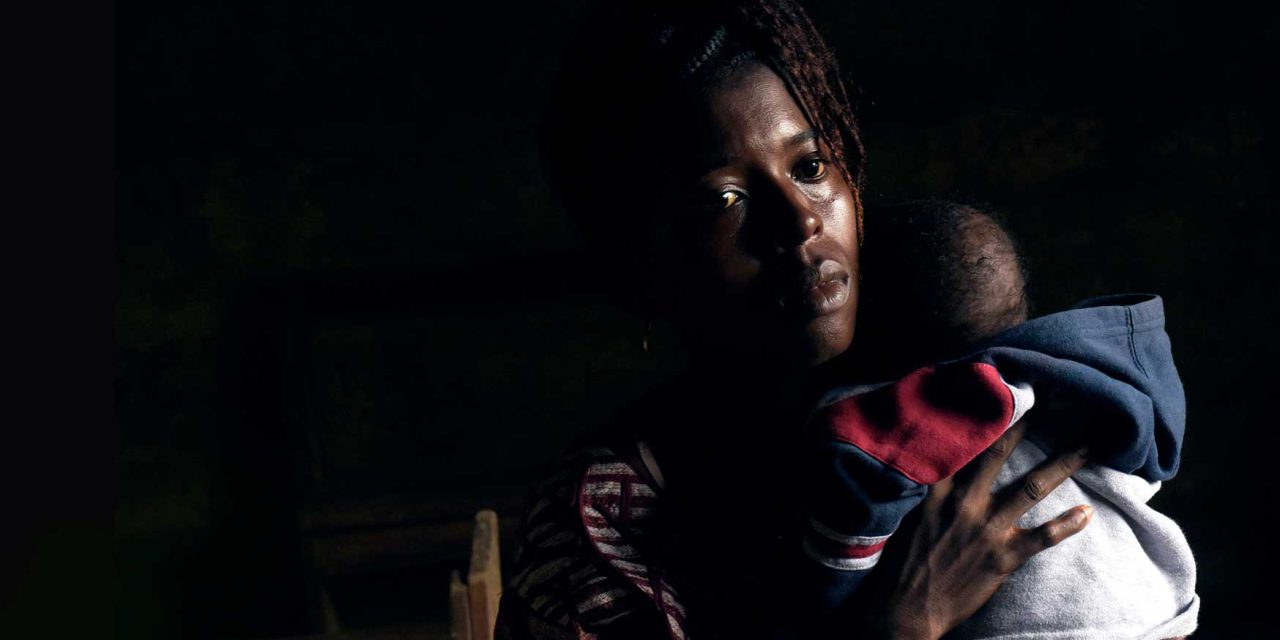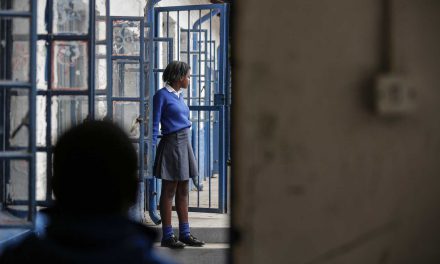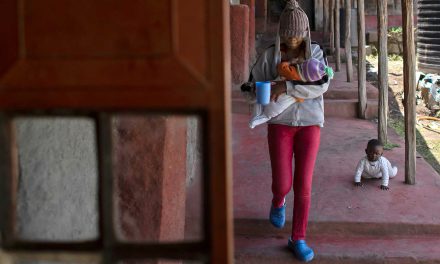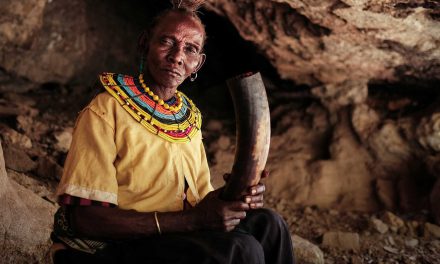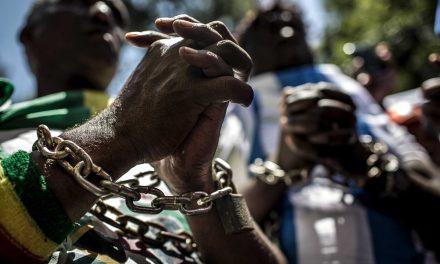The African Union (AU) acknowledges that gender equality is a fundamental human right and an important part of regional integration, social development and economic growth. It went as far as developing its Strategy for Gender Equality and Women’s Empowerment (GEWE) in February 2019 to make sure women are included in Africa’s development agenda.
An important step in Africa’s efforts to protect the interests of the African girl child is the Protocol to the African Charter on Human and Peoples’ Rights on the Rights of Women in Africa, otherwise known as the Maputo Protocol. It came into effect in 2005, after the AU adopted it on 11 July 2003 in Maputo, Mozambique, and guarantees women political equality with men, their guaranteed autonomy to reproductive health choices, and an immediate end to female genital mutilation.
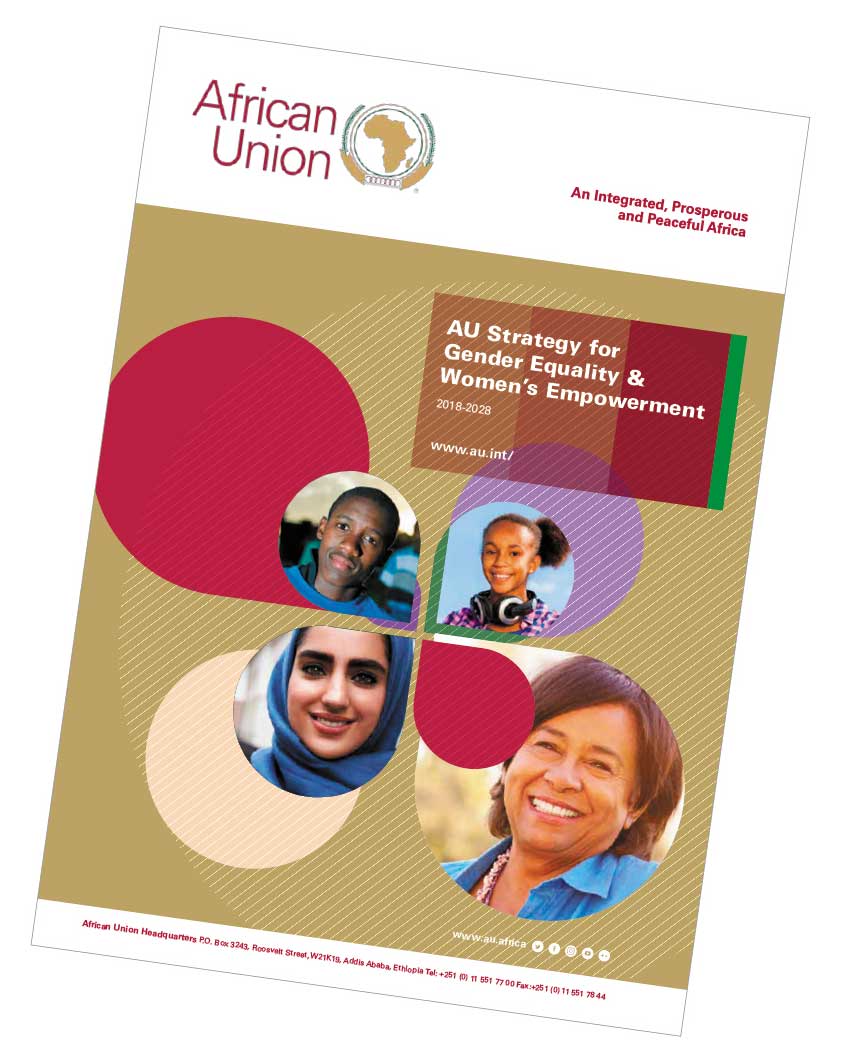 Within the protocol, Article 5 calls for the elimination of harmful practices, including female genital mutilation and other traditional harmful practices to women and girls. Article 12, meanwhile, calls for the right to education and training, and Article 14 espouses health and reproductive rights.
Within the protocol, Article 5 calls for the elimination of harmful practices, including female genital mutilation and other traditional harmful practices to women and girls. Article 12, meanwhile, calls for the right to education and training, and Article 14 espouses health and reproductive rights.
So, how is the Maputo Protocol helping the African girl child? Some landmark legal examples set out here illustrate how these will suffice to buttress the assertion that it has indeed been in their best interest.
In December 2019 the Economic Community of West African States (ECOWAS) Court of Justice ruled that the ban that prevented pregnant girls from going to school in Sierra Leone was discriminatory and violated the girls’ right to education. The government was said to have breached Articles 2 and 12 of the Maputo Protocol. Following the court’s ruling, Sierra Leone’s government lifted the ban in March 2020, setting a precedent in West Africa.
In 2001 a 13-year-old girl was kidnapped and raped in Ethiopia. She was rescued and the perpetrator arrested. After her kidnapper was granted bail, he kidnapped her again, held her for more than a month, and forcibly married her. He was later arrested and sentenced to 10 years in prison, but on appeal the High Court quashed the sentence imposed by the lower court. Women’s rights’ organisation Equality Now, in collaboration with the Ethiopian Women Lawyers Association, filed a case on the victim’s behalf before the African Commission on Human and Peoples’ Rights (AfCHPR) and urged the government to repeal the “marry your rapist” law to include severe penalties for perpetrators.
In 2018 the commission found that Ethiopia had failed to protect the rights of the victim, in violation of her rights to liberty, the right to life and security of person, and to dignity under the Maputo Protocol. The Ethiopian government was compelled to pay compensation of $150,000.
In Tanzania, the High Court ruled in 2016 that marriage under the age of 18 was illegal and referred to Article 6 of the Maputo Protocol, which sets the minimum age of marriage at 18.
In Uganda, in 2010, the Constitutional Court ruled in favour of an application by NGO Law and Advocacy for Women, which filed a case asking the court to declare Female Genital Mutilation (FGM) a violation of girls’ and women’s rights. The court ruled that while the constitution guaranteed the right to culture, the same culture should not subject anyone to any form of torture or degrading treatment. The court, in line with Article 5 of the Maputo Protocol, ruled that FGM violated the provisions of the Ugandan Constitution as well as other treaties, conventions, and protocols to which the country is a party.
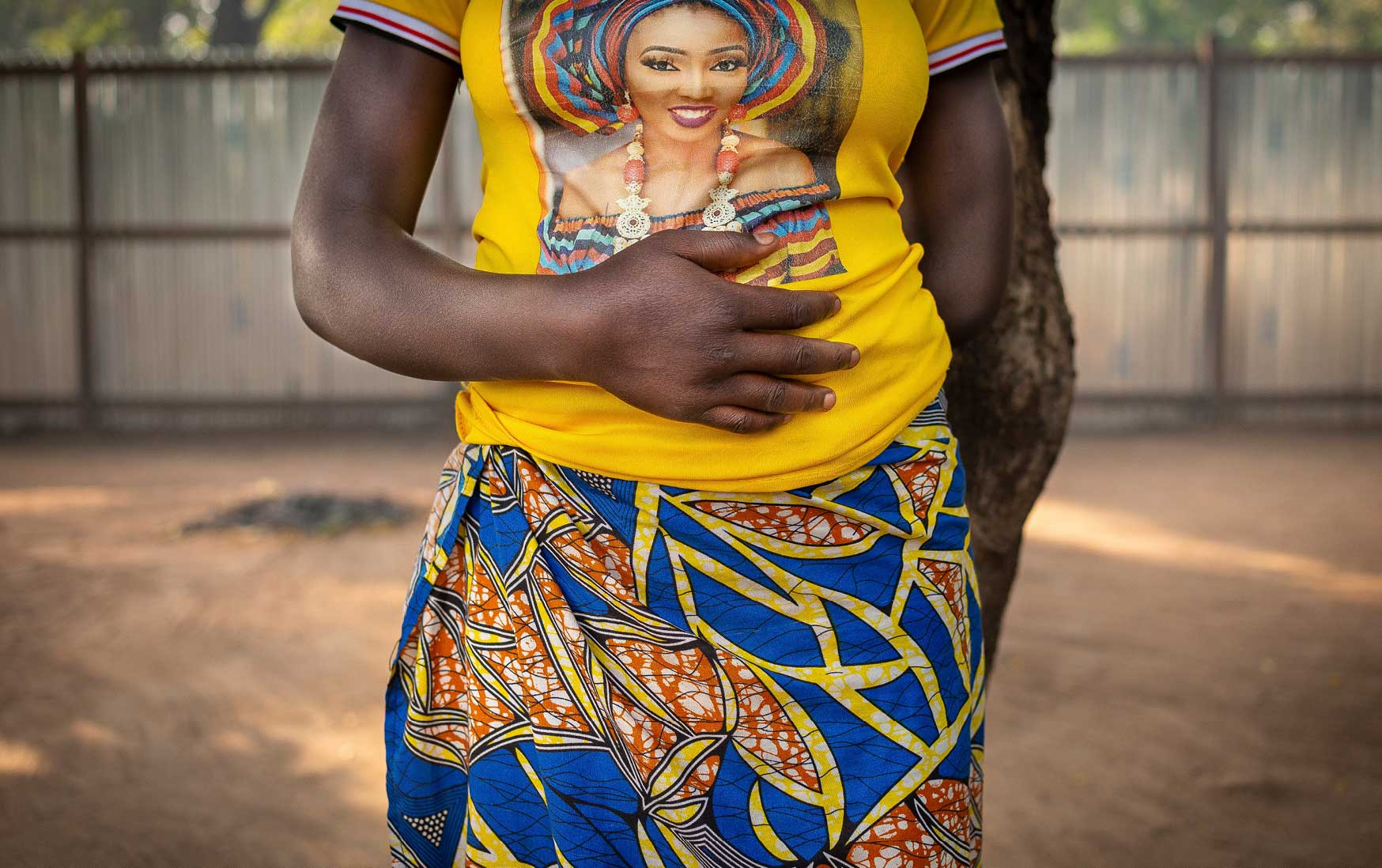
A 15-year-old girl who got pregnant after she was raped by rebels in the north-west of Central African Republic is photographed at a counselling center in December 2021.
Mali, in 2011, passed the Family Code, which set the minimum age of marriage for girls at 16 and 18 for boys. The provisions did not require religious ministers to obtain proof of parties’ consent to marriage, and they also gave precedence to religious and customary laws when handling inheritance issues.
In May 2018, the AfCHPR found Mali’s government to be in violation of Articles 6(a) and (b) and 21 of the Maputo Protocol on the minimum age of marriage, consent to marriage and right to inheritance.
Progress has been made elsewhere, too. Habiba Osman, a lawyer and the current executive secretary of the Malawi Human Rights Commission, says: “The government of Malawi has demonstrated a considerable level of commitment to achieving gender equality for women and girls in Malawi over the past 10 years. The enactment and development of progressive gender laws and policies can be attributed to the vibrant gender network and machinery in the country.”
At the AU Level, Malawi is bound by several commitments aimed at achieving gender equality for both women and girls. These include the African Charter on Human and Peoples Rights, ratified by Malawi in 1989, the African Charter on the Rights and Welfare of the Child (ACRWC), ratified in 1999, the Maputo Protocol and the SADC Protocol on Gender and Development.
Other African countries have also enacted supporting policies. Nigeria, for example, introduced the Child Rights Act in 2003, the Sexual Offences Act (2013), and the Violence Against Persons Prohibition Act (2015).
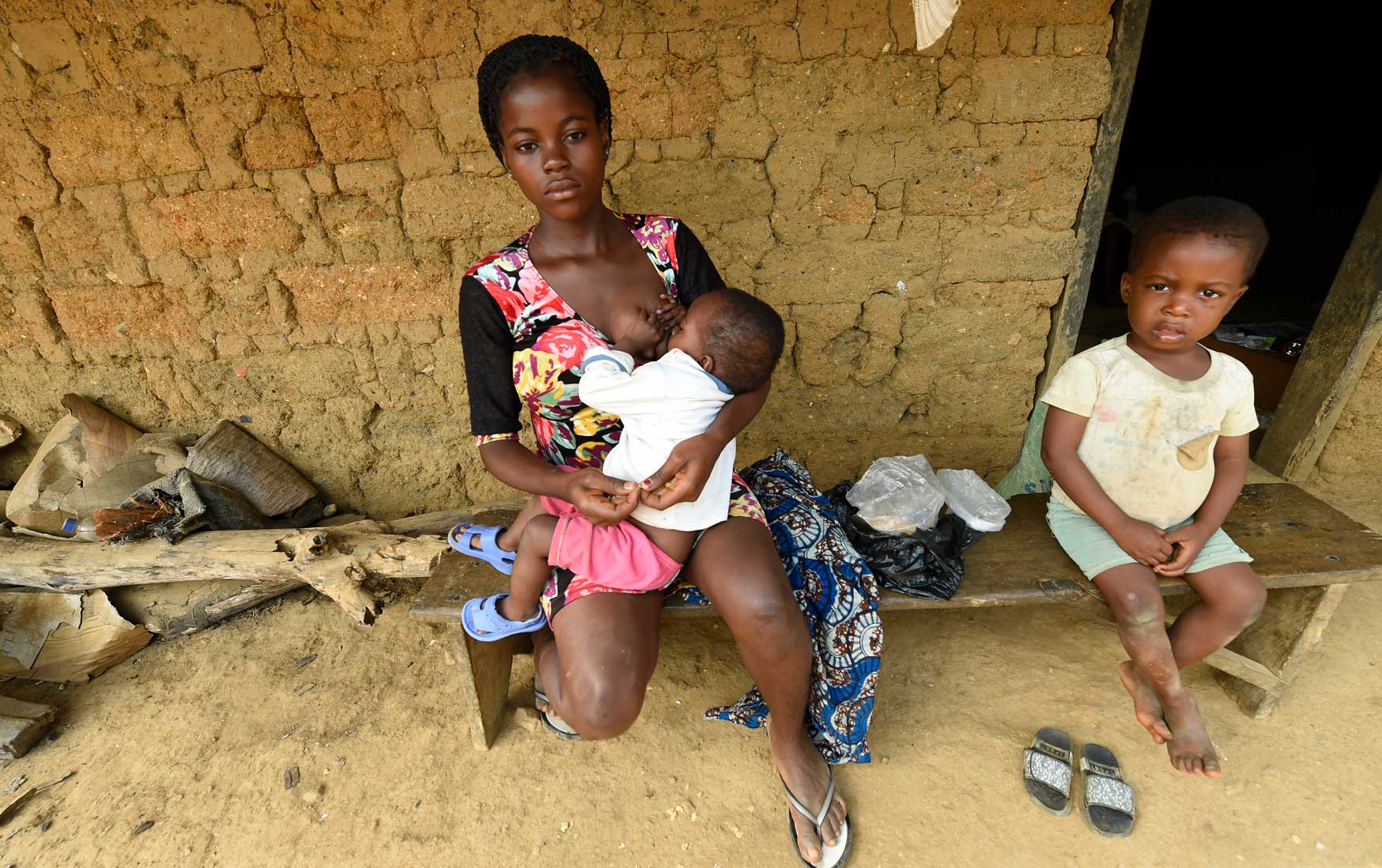
Eighteen-year-old pregnant Cameroonian refugee Yvonne Ndep breastfeeds her child in front of a house, where hundreds are being sheltered at Bashu-Okpambe village in Boki district of Cross Rivers State in south-east Nigeria.
But 19 years after the adoption of the Maputo Protocol, progress – and enforcement – has still been relatively slow. This is due to member states lagging in domesticating its provisions (Nigeria’s Child Rights Act was passed at the federal level in 2003, but by 2016 only 24 out of 36 states had codified it). Some countries have yet to sign and ratify the Maputo Protocol. Member states that have ratified the Protocol also rarely submit reports on progress in implementing the provisions of the Protocol in their own jurisdictions.
Chioma Adiele-Okpara, a Nigerian-based gender expert on the Ignite Project with Tanager International, an international non-profit organisation, says early and child marriage is still a major challenge. “Girls in Nigeria, just like their counterparts in other African countries, are at risk of early/child marriage, which is a violation of children’s rights. Yet, in many of our communities, girls continue to be exposed to this practice.
“Often families force them into marriage for several reasons, including family poverty, religious and traditional practices, and to avoid the social stigma of teen pregnancy, which is often considered the reason for early marriage. To prevent any sort of dishonour to the family – and perhaps to secure the financial future of the girls – families sacrifice the girl child on the altar of community values.
“My worry is that these girls’ economic situation is worse after marriage. They are mostly dependent on their husbands; they drop out of school, they often lack the ability to make decisions related to finances within their households, and carry most of the burden of household care and work.”
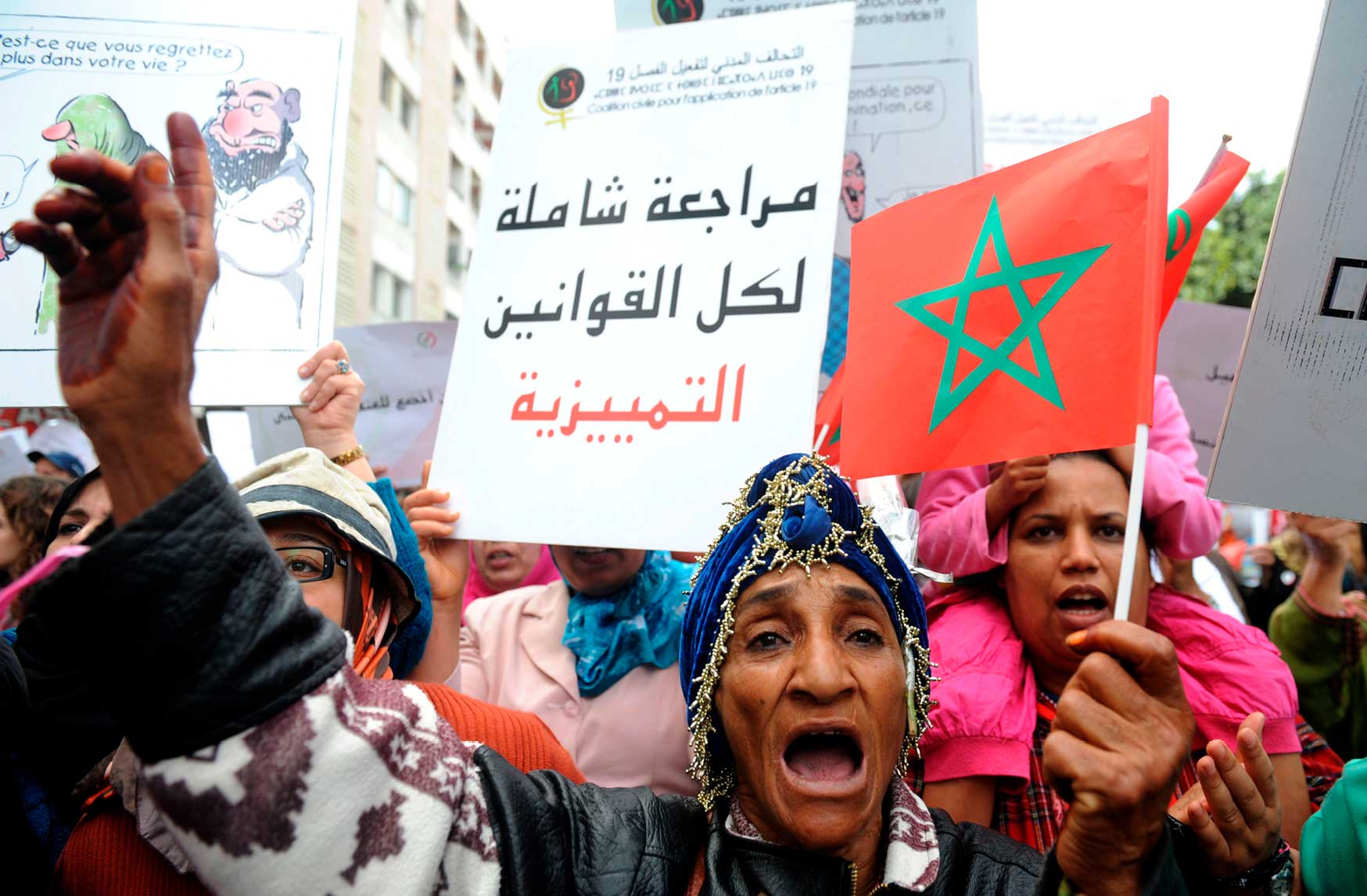
Moroccan women shout slogans during a protest calling for gender equality as they mark International Women’s Day in Rabat in March 2015. The placard reads in Arabic: “A comprehensive review of all discriminatory laws”.
Adiele-Okpara told Africa in Fact that conflict, climate change, and Covid-19 had worsened the situation, putting more girls at risk as parents resorted to child/early marriage to cope with the effect of economic shocks and hardship.
“Strong regulatory protection for girls is the surest way to support and empower our girls,” she said. “In many Sharia-legislated states in Nigeria, early/child marriage is justified on religious and traditional grounds, with the age of adulthood based on puberty. There is an urgent need for Nigeria to harmonise its laws to conform to international legal standards to protect children. The Child Rights Act should be put into practice by all states. The federal government and state authorities that have adopted the law should also create a strong action plan to ensure effective implementation of legislation and sanctions for non-compliance.”
While the girl child remains vulnerable due to norms, mores, and cultural practice, the AU – through the instrumentality of the Maputo Protocol – is gradually changing this narrative, and setting the stage for the African girl child to not only have a loud voice but to create an enabling environment for the full realisation of her potential.

